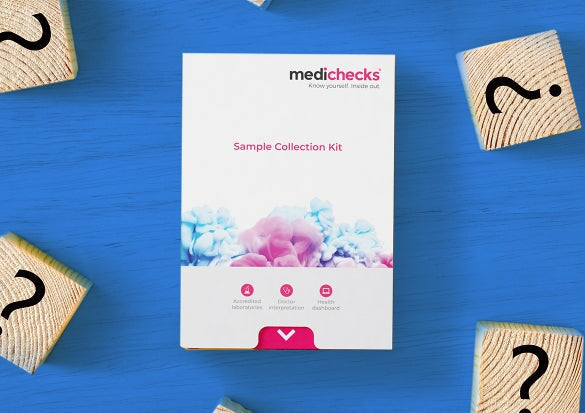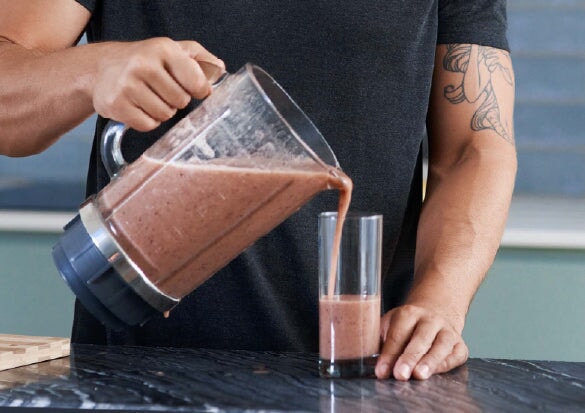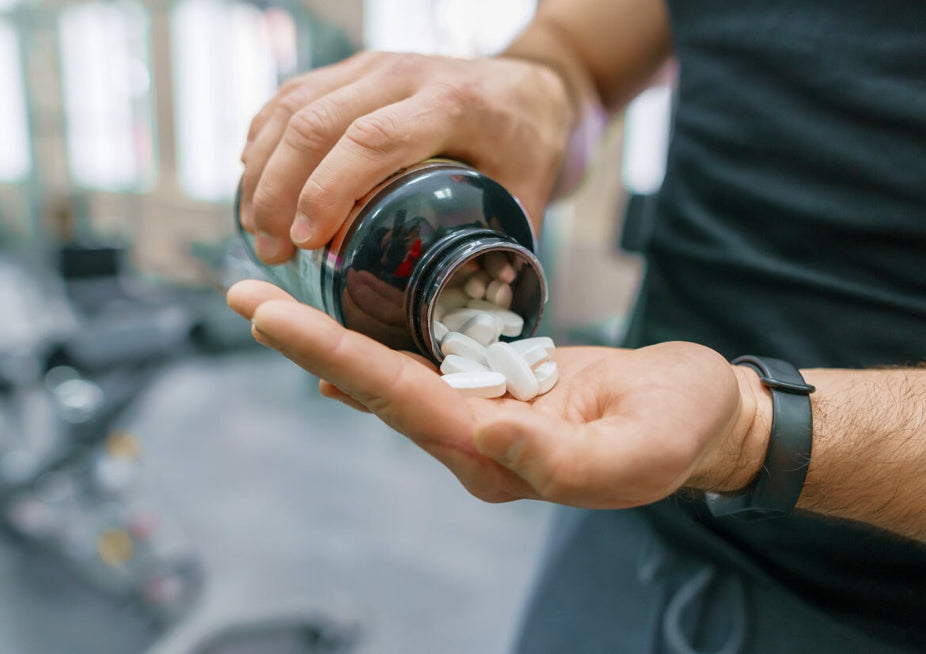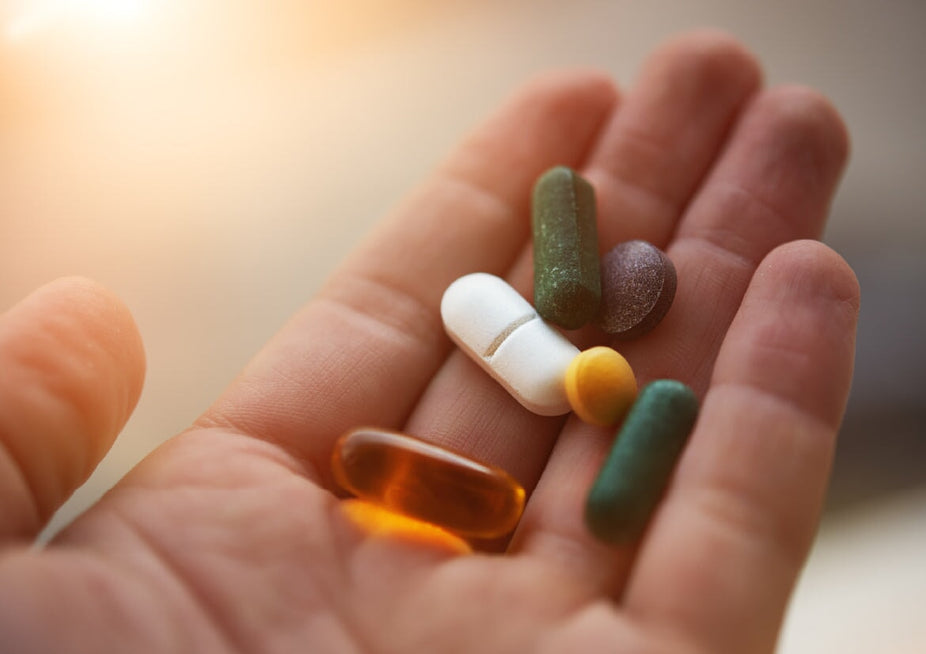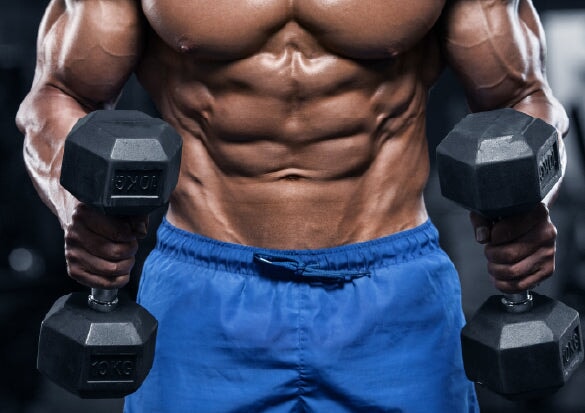Signs you’re overtraining and how to recover
What are the pitfalls of too much training? Learn about the signs of overtraining, how to recover, and the roles of anabolic and catabolic hormones in recovery.
When exercising intensely you put your body under stress [1]. The stress you put on your body can be good and allow you to become fitter and stronger. But only if the stress comes in moderation.
Stress in the context of sports is thought of differently from everyday stress, but cortisol (the stress hormone) is still responsible. And it’s not the only hormone to consider when figuring out whether you’re sabotaging your performance through overtraining.
For endurance athletes, adrenal (hormonal) health is critical when deciding what training to do, when to increase that training, and most importantly – when to cut back.
In this blog, we discuss:
- What overtraining is
- What the signs are
- What anabolic and catabolic hormones are
- How to avoid overtraining
- How to recover from overtraining
What is overtraining?
Overtraining occurs when an athlete continues to train despite experiencing negative symptoms. There can be negative stigmas in the sporting world associated with rest, but pushing your body past its limits can lead to a breakdown in the body – known as overtraining.
Overtraining is one of the top reasons that athletes will not reach optimal performance. You may be having symptoms of overtraining without realising it.
Signs you may be overtraining
- Lack of progression - Despite increasing the quality and/or quantity of your training, your progression may slow or reverse. If you’re working harder in sessions that have felt easier in the past, it may be a sign of overtraining.
- Injuries and niggles - Consistently getting injuries or persistent niggles that don’t clear or keep reappearing.
- Muscle fatigue and slow recovery - Struggling to recover from your sessions and feeling regularly fatigued or low in energy.
- Mood swings and sensitivity - Finding yourself regularly irritable and moody.
- Loss of motivation - Simply no longer enjoying your training, seeing it as a ‘chore’, and fearing your hard sessions (as well as a loss of focus and determination).
- Weight loss or gain - Overtraining increases the likelihood of rapid and hard-to-explain weight fluctuations.
- Cravings - It’s common to find yourself craving sugar and processed foods to help give you an energy boost not produced by your adrenal system.
- Tiredness - You may experience constant, or periods of, extreme tiredness. A decreased ability to achieve a deep sleep phase is often indicated by increased movement during sleep.
- Illness - Upper respiratory infections are a very common indicator of overtraining [2].
- Loss of libido: Overtraining causes a reduction in anabolic hormones, which can result in reduced sex drive.
- Blood deficiencies - Aside from checking your hormones, blood tests can also reveal markers such as a drop in ferritin (a protein that stores iron), B12, and magnesium.
Symptoms of overtraining
| Parasympathetic changes (more common in aerobic sports) | Sympathetic changes (more common in anaerobic sports) | Other |
| Fatigue | Insomnia | Anorexia |
| Depression | Irritability | Weight loss |
| Bradycardia (slow heart rate) | Agitation | Lack of concentration |
| Loss of motivation | Tachycardia (fast heart rate) | Heavy, sore, stiff muscles |
| Hypertension (high blood pressure) | Anxiety | |
| Restlessness | Waking feeling unrefreshed | |
| Sickness |
If you are experiencing symptoms and think it may be down to overtraining, it may be worth checking with a blood test, such as our Ultimate Performance Blood Test.
Overtraining syndrome is usually diagnosed based on symptoms, but sometimes a blood test may be done.
Blood tests use key indicators (biomarkers) to see whether a deficiency or inflammation might explain unwanted symptoms.
Many performance-related blood tests will test biomarkers including:
- Vitamins and minerals
- Catabolic hormones (such as cortisol)
- Anabolic hormones (such as testosterone)
- Inflammatory markers (such as CRP or neutrophil to lymphocyte ratio)
What are anabolic and catabolic hormones?
Hormones in the body play a critical role in recovery. Hormones can be split into anabolic and catabolic hormones.
Anabolic hormones are any hormones that stimulate growth.
Anabolic hormones include [3]:
- Testosterone
- Growth hormone
- Insulin
As anabolic hormones stimulate growth and repair, they are vital in helping your body to recover properly. If your body is not producing the right levels of anabolic hormones, you could be overtraining.
There is also a chance that if you are taking anabolic steroids, your hormones will take a hit and harm your health. For example, males who take anabolic steroids quite often have low levels of testosterone [4].
You can read more about the effects of steroids on the body in our blog.
Catabolic hormones however do the opposite of anabolic hormones.
Catabolic hormones such as cortisol (the stress hormone) can:
- Break down muscle
- Suppress the immune system
- Enhance fat storage (at the expense of protein and muscle)
Putting stress on the body is necessary for muscle-building, but having long-term high cortisol levels can negatively impact your training and lead to fatigue and failure to make progress.
To avoid overtraining, you will want your body to be under enough stress to trigger progression and muscle hypertrophy (increase and growth of muscle cells), but not too much that it impairs the recovery process.
How to avoid overtraining
1. Have a plan
A sensible, structured, and balanced training plan that gives you sustainable progression is important. A good plan will see you do different types of training throughout the year. It should make balance, rest, and recovery a priority during more intense sessions and ensure you have lighter weeks.
2. Be ready to adapt
Listen to your body and listen to its warning signs. If you start to feel the signs of overtraining (if you’re testing and your biomarkers indicate overtraining), be prepared to step off your plan, bring it down a notch, and take extra rest or recovery sessions.
3. Mix the hard with the easy
Alternate hard and easy sessions to ensure your body rebuilds at a steady level – and make sure you include at least one full rest day each week, and at least one active rest day (with something of lower intensity, such as yoga). Include cutback weeks every three to four weeks, and reduce the intensity and volume of training.
If you are taking part in competitions or races, it is best to schedule longer periods of rest after completion to help let your body repair.
A heart rate monitor or activity tracker can help you understand how your body is performing and can give you a warning sign as to whether you’re overdoing it. You should aim to stay below your recommended maximum heart rate.
Your maximal heart rate (HRmax) can be measured using the formula [5]:
- HRmax = 220 – Age
So, if you are a healthy 32-year-old, your maximal recommended heart rate would be 220 – 32 = 188 bpm.
4. Accept outside influences will impact your training
Look at all the external forces around your training – work and social life pressures, emotional upheaval, and relationship stress can massively impact your ability to recover.
Ensuring you have a healthy balance between training and other life commitments will give your body the time to rest. If you are stressed, high-intensity training can heighten your cortisol levels further and do more harm than good.
You can measure your stress levels with our Cortisol Saliva Stress Test, to see if your levels may be impacting your training and recovery.
If you are struggling with stress, lower-intensity exercise may be the way forward, and your training may need to be scaled back for a time. You can read about ways to de-stress in our 10 top ways to de-stress blog.
5. Fuel your recovery
A balanced diet full of macronutrients and micronutrients from varied healthy sources will help keep your body ticking over.
Vitamins and minerals to monitor when training include:
- Iron
- Vitamin C
- Magnesium
- B vitamins
- Zinc
To help you enhance your training with your diet, check out our top tips for sports nutrition.
6. Sleep yourself fit
Anabolic hormones are released during your deep sleep cycles [6] and there’s a direct link between regular poor sleep and an increased risk of overtraining in athletes.
A lack of sleep can also cause symptoms such as:
- Low immunity
- Weight gain
- Poor mental health
These, in turn, can negatively impact your training and recovery. To make sure you’re getting a good night’s sleep, try having a warm bath, reading a book, and putting your phone away.
We have more advice on how to get a better night’s sleep in our ways to improve your sleep blog.
7. Get a blood test
Having a regular blood test can help you identify deficiencies, and inflammation, and keep track of your hormones. Some markers, like testosterone, cortisol, and CRP, are sometimes helpful in detecting signs of overtraining. Rest periods are essential after periods of stress to allow your body to recover.
With our range of Sports Performance Blood Tests, you can test yourself and keep track over time using our tracker function.
Want to know more? Take a look at our Sports Performance Blood Testing Guide.
What blood tests can tell you about your training
The Ultimate Performance Test has been specifically designed for athletes, and it’s full of biomarkers to monitor.
A rough schedule to include blood tests within your training routine would be:
- Start with a baseline test - before a new training programme or competition.
- Take a peak test - mid-way through a competition or training cycle.
- Complete with a recovery test - one to two weeks after a training cycle.
Sometimes we can tell a lot from unique one-off markers, but often when it comes to sports performance, we gain the most information from looking at the trends over time.
-
Your hormones and overtraining
After several weeks of releasing hormones in response to stresses (training), the body will dampen the response to these hormones, which results in releasing fewer hormones.
We might see:
- High and then low cortisol
- Low prolactin
- Low female sex hormones
- Low male sex hormones
Sex hormones may manifest in loss of normal menstrual function in women and reduced libido in men. For men, a hybrid marker to look at is the testosterone:cortisol ratio.
-
Your immune system and overtraining
Excessive training can cause an increase in your stress hormones, which can dampen your immune system. So, we might see this reflected in your white cell count. If your immune system is dampened, you become more vulnerable to infections, in particular respiratory tract infections.
-
Muscle damage and repair
Creatinine kinase is produced when your muscles break down from heavy exercise (and you often feel your muscles ache after hard workouts). If muscles aren’t repairing quickly, then they’ll also struggle to hold your body’s energy stores in the form of glycogen, so you’ll get more tired more quickly.
-
Aerobic breakdown - haemoglobin and overtraining
Endurance athletes can lose blood (and therefore iron from the haemoglobin) more easily than other athletes. This is because their muscles break down red cells as they rub together, the gut does a similar thing and foot stamping crushes them as well. Top-level athletes ideally want to have haemoglobin towards the high end of the normal range, and for every 1g/Kg lost, your VO2 Max will decrease a little bit.
-
Nutrient depletion - iron and vitamin D for sports performance
Nutrients are fuel, and you’ll use them up through exercise. Keep these optimised, and you can check your levels through blood results. Your iron and vitamin D levels can affect performance if levels drop.
How do I recover from overtraining?
The only way to recover from overtraining is to rest. It may be best to take at least four to six weeks out of your training programme, if not longer. This doesn’t mean you have to stay away from all exercise though.
Activities you can still do when recovering from overtraining include:
- Walking
- Light jogging
- Yoga
- Pilates
Getting a sports massage may also help to relax your muscles. Once you’re feeling better, it may be worth getting a repeat blood test, such as our Ultimate Performance Blood Test, to confirm that what you’re feeling is also true on the inside.
We often say prevention is better than cure, but for an athlete at risk from OTS, this has never been truer. For people who do go on to get OTS, the only cure is rest. And by rest, it means proper rest for weeks, sometimes even months. No competition and serious deconditioning. You can think of it as a serious injury. No athlete wants this.
So instead, the key is to prevent it. The easiest way to do this is by monitoring yourself as outlined above — diaries, check-ins, and blood tests. If you notice something’s not right, then STOP. Take a few days, and then restart. That’s the way to do it.
You can also look to optimise other aspects of your life:
- Make sure you have good nutrition. Home-cooked, whole foods, nutrient-rich for your sport.
- Get a calorie tracker. Make sure you’re taking in everything you need.
- Sleep well. Read our blog on the effects of poor sleep.
- Plan rest days. Ensure your training and competition schedule incorporates plenty of rest days.
- Reduce stress. Try to minimise stresses in other aspects of your life.
- Keep up your fluids. Stay well hydrated and ensure you’re getting fresh air.
References
- Hill, E., Zack, E., Battaglini, C., Viru, M., Viru, A. and Hackney, A., 2008. Exercise and circulating Cortisol levels: The intensity threshold effect. Journal of Endocrinological Investigation, 31(7), pp.587-591.
- Kreher, J. and Schwartz, J., 2012. Overtraining Syndrome. Sports Health: A Multidisciplinary Approach, 4(2), pp.128-138.
- Demling R. H. 2005. The role of anabolic hormones for wound healing in catabolic states. Journal of burns and wounds, 4, e2.
- National Institute on Drug Abuse. 2022. What are the side effects of anabolic steroid misuse? | National Institute on Drug Abuse. [online] Available at: <https://nida.nih.gov/publications/research-reports/steroids-other-appearance-performance-enhancing-drugs-apeds/what-are-side-effects-anabolic-steroid-misuse#:~:text=Steroid%20use%20disrupts%20the%20normal,the%20testicles%20(testicular%20atrophy).> [Accessed 1 April 2022].
- GELLISH, R., GOSLIN, B., OLSON, R., McDONALD, A., RUSSI, G. and MOUDGIL, V., 2007. Longitudinal Modeling of the Relationship between Age and Maximal Heart Rate. Medicine & Science in Sports & Exercise, 39(5), pp.822-829.
- Ritsche, K., Nindl, B. and Wideman, L., 2014. Exercise-Induced growth hormone during acute sleep deprivation. Physiological Reports, 2(10), p.e12166.
Related tests
Are you looking to transform your body through diet and exercise and track your progress along the way?
Our Ultimate Blood Test is designed for those who want to take their health and fitness to the next level — whether you're an athlete, biohacker, or simply someone who's serious about...
- Results estimated in 3 working days
- 56 biomarkers
Venous collection
Select testFeeling overwhelmed or suspect that stress may be affecting your energy levels and mood? Our Cortisol Saliva Stress Test measures your cortisol levels at four key points throughout the day, helping you understand your daily hormone rhythm and pinpoint imbalances that might be impacting your we...
- Results estimated in 3 working days
collection
Select testAre you experiencing symptoms of low vitamin B12, such as extreme tiredness, low energy, muscle weakness, or poor memory?
If your diet lacks B12-rich foods like meat, fish, or dairy, or you have a health condition that affects absorption—such as Crohn’s or coeliac disease, or pernicious...
- Results estimated in 2 working days
- 1 biomarkers
Finger-prick or Venous collection
Select testFeeling constantly tired or struggling with low energy? Your iron levels could be the reason
- Results estimated in 3 working days
- 5 biomarkers
Finger-prick or Venous collection
Select testFeeling fatigued, experiencing muscle cramps, or struggling with low energy? Magnesium is essential for muscle function, nerve signalling, and heart health, but low levels can often go unnoticed
- Results estimated in 3 working days
- 1 biomarkers
Finger-prick or Venous collection
Select test


